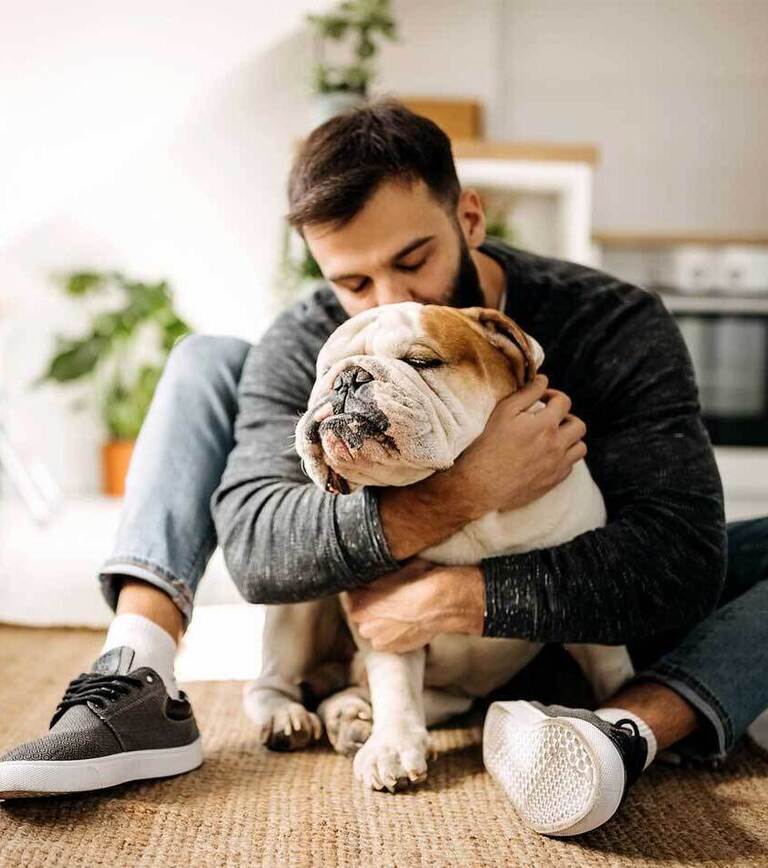Supporting A Grieving Pet

posted 18th June 2025
Just like us, dogs can experience grief and mourning after the loss of a companion — whether it’s another pet in the household or a much-loved human. They may not understand what’s happened, but they often sense that something has changed, and their behaviour may shift as a result.
If your dog is grieving, there are gentle and supportive ways you can help them through this difficult time. Below are some tips to guide you as you care for a pet who's feeling the weight of loss.
Maintain a Routine
Dogs find comfort in routine, and in times of uncertainty, consistency can help them feel more secure. Try to keep daily schedules as regular as possible. Stick to their usual feeding times, walks, and play sessions. Familiar patterns provide stability and reassure your dog that, despite their sadness, the world around them is still safe and dependable.
Offer Extra Comfort
Grieving dogs may seek more affection and attention. Extra cuddles, a soothing voice, or simply sitting close can make a big difference. Brushing them gently, offering their favourite toy, or even giving them a blanket that carries the scent of the pet they’ve lost may bring comfort. These small acts of love can be grounding and reassuring.
Exercise and Playtime
Gentle activity can be helpful in lifting your dog’s spirits. Try short walks or easy play with their favourite toys. Movement not only offers a healthy distraction but also helps them release stress and tension. However, always be guided by your dog’s energy levels — don’t push too hard if they seem low or disinterested.
Be Patient with Behavioural Changes
It’s not unusual for grieving dogs to withdraw, sleep more, or act out in ways they normally wouldn’t. You might notice signs of anxiety, loss of appetite, or increased clinginess. Be patient. Avoid punishing any unusual behaviour — instead, offer reassurance and understanding. These changes are often temporary and part of their way of processing grief.
Socialisation (Carefully)
If your dog is missing the company of their furry friend, short and positive interactions with other dogs may help. Introduce them slowly and ensure it’s with dogs who have a calm and gentle nature. You can also arrange visits with familiar friends or neighbours with pets, providing gentle exposure to social environments without overwhelming them.
Give Space When Needed
Not every dog wants extra attention when they’re sad. Some may need quiet time to themselves. That’s okay — just make sure they’re still eating, drinking, and maintaining some level of daily routine. Respect their space, but stay observant and present so they know you’re nearby if they need you.
Consider Professional Help
If your dog is showing signs of extreme sadness — such as refusing food, excessive vocalising, destructive behaviour, or signs of physical illness — speak to your vet. There may be underlying issues, or they might recommend support for pet anxiety or depression. In some cases, a referral to a behaviourist or animal grief specialist could be beneficial.
Extra Love from You
More than anything, your presence is what your dog needs most. Grief can feel lonely and confusing for them. Spending quality time together — even just sitting quietly or enjoying a favourite treat — can go a long way in easing their emotional burden.
Remember: Dogs are incredibly intuitive and loyal animals. They may not fully understand the loss, but they feel the absence deeply. With time, patience, and love, they can begin to heal — and your support makes all the difference.
If you’re struggling with your own grief as well, you’re not alone. At Rainbow Bridge Pet Funerals, we’re here to support both you and your beloved pets through every step of the journey.








